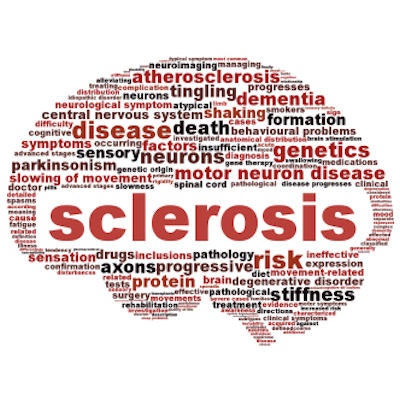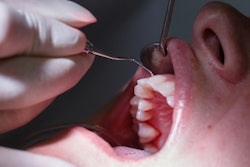
Patients with multiple sclerosis (MS) are at greater risk of developing periodontal disease and caries due to difficulties they may have performing oral care and accessing a dentist, according to a clinical paper published in the British Dental Journal.
MS is a chronic, immune-mediated inflammatory condition that affects the central nervous system. Due to the degenerative nature of the disease, clinicians should develop a careful oral health plan that addresses the specific symptoms that patients have. This plan should start as soon as patients are diagnosed with MS, the authors wrote.
"Adopting a patient-centered approach is essential to ensure safe and effective dental care for individuals with MS," wrote the authors, led by Dr. Jashme Patel of the department of oral surgery at King's College Dental Hospital in London (Br Dent J, September 10, 2021).
In 2017, there were an estimated 1 million people with MS in the U.S., according to a study funded by the National Multiple Sclerosis Society. Those with multiple sclerosis commonly experience motor disturbances, facial pain, fatigue, and trigeminal neuralgia, which can affect one's ability to maintain oral hygiene.
Due to the variation in symptoms associated with the condition and their varying degrees of severity, dental care for patients with MS must be based on their individual needs. Likely, their needs and care will vary significantly over time.
When creating oral health plans for patients with MS, clinicians should consider their patient's specific symptoms. For example, patients who experience decreased manual dexterity should be encouraged to use an electric toothbrush with a modified handle, the authors wrote.
In addition, patients who experience medication-related dry mouth should be encouraged to take frequent sips of water, chew sugarless gum, or take salivary substitutes. For those who have difficulty swallowing, clinicians should recommend nonfoaming sodium lauryl sulphate-free toothpaste, as well as having someone assist with their brushing, they noted.
Though patients with MS can be treated safely and effectively in dental offices, it may be necessary to refer them to community dental services or secondary care sites. Depending on patients' needs, they may benefit from special accommodations, such as receiving treatment in a wheelchair recliner or while under sedation or general anesthesia.
Furthermore, dentists should consult with healthcare professionals, such as neurologists, other physicians, and MS specialty nurses, who are involved in their patients' care and can explain the medications patients are taking, as well as their possible oral and systemic side effects. For example, some biological medications may increase a person's risk of bleeding and infection, the authors wrote.
By building a plan that includes insight from other professionals, it "ensures that safe and appropriate care is provided to the patient," Patel and colleagues wrote.




















